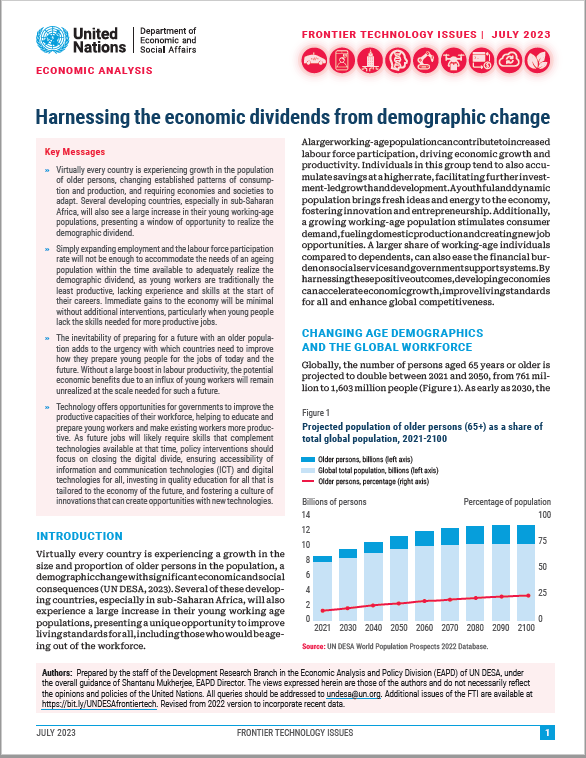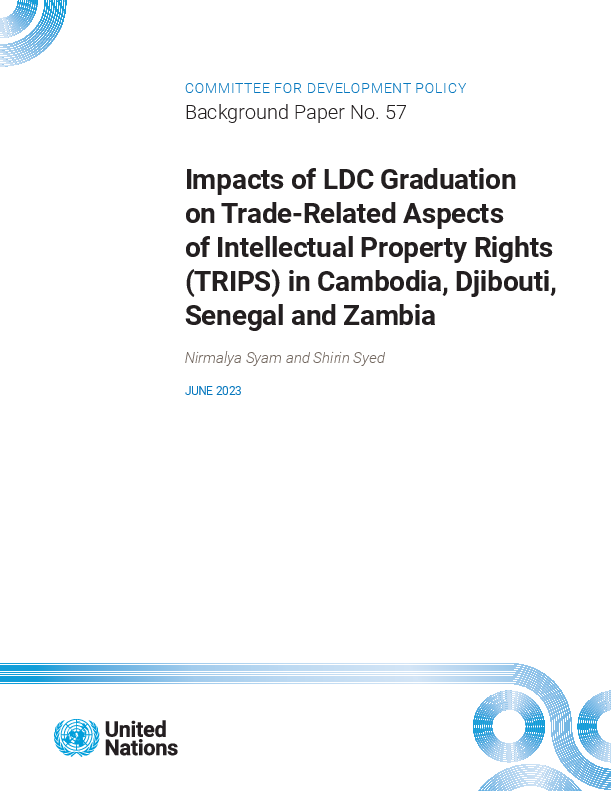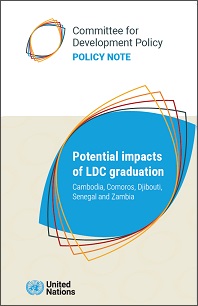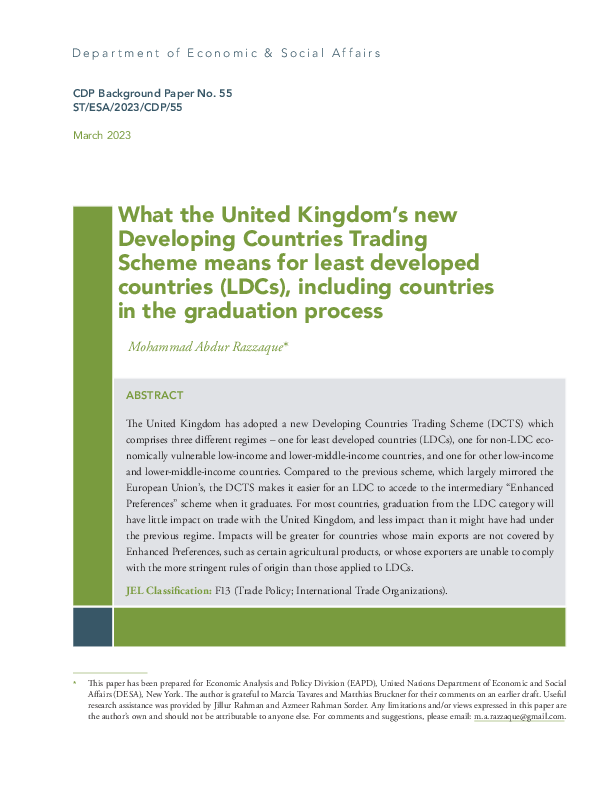Publications
Displaying 11 - 20 of 328
عربي, 中文, English, Français, Русский, Español CDP excerpts on the report by theme
Just transition
External debt
Analysis of the voluntary national reviews
Review of the least developed country criteria
Review of the recognition and use of the least developed country category by United Nations development system entities
Monitoring of countries that are graduating or have graduated from the list of least developed countries ECOSOC resolution (E/RES/2023/10) on the Report of the Committee for Development Policy
عربي, 中文, English, Français, Русский, Español ECOSOC resolution (E…
Place: UNHQ, New York, USA Documents Agenda Report of the Committee for Development Policy (E/2023/33, Supplement No. 13)
عربي, 中文, English, Français, Русский, Español Opening Statements Statement by Mr. Li Jinhua, Under-Secretary-General for Economic and Social Affairs Open Session - The just transition debate: ambition meets reality 21 February 2023, 1:15 - 2:45 PM, Conference Room 7, UNHQ, New York Link to the event page The recording of the event can be watched at: UN Web TV Interactive Session with ECOSOC 24 February 2023, 10:00 - 11:30 AM, ECOSOC Chamber, UNHQ, New York Opening remarks by HE. Ambassador Lachezara Stoeva, President…
عربي, 中文, English, Français, Русский, Español
عربي, 中文, English, Français, Русский, Español Corrigendum (E/2022/33/Corr.1) to the Report of the Committee for Development Policy
To reflect the correct graduation date for Bhutan
عربي, 中文, English, Français, Русский, Español CDP excerpts on the report by theme
Building back better from the coronavirus disease (COVID-19) while advancing the full implementation of the 2030 Agenda for Sustainable Development
Review by the Economic and Social Council of subsidiary bodies
Voluntary national reviews (VNRs)
Monitoring of countries that are graduating or have graduated from the list of…
 Welcome to the United Nations
Welcome to the United Nations






